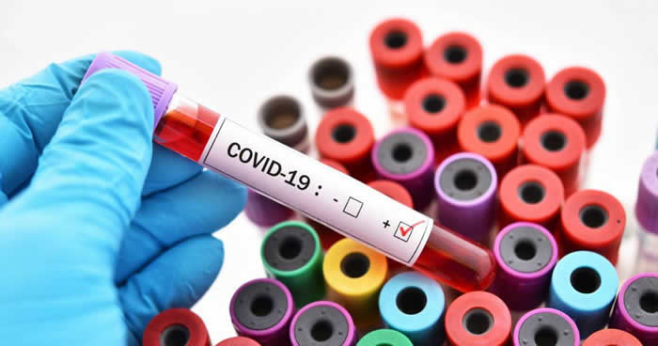The United Kingdom on Wednesday (December 2) announced it has authorized a COVID-19 candidate vaccine for emergency use.
The U.K. approved the vaccine from American drugmaker Pfizer and Germany’s BioNTech. It expects vaccinations in the country to start within days.
Regulators in the rest of Europe and the U.S. have yet to decide on granting emergency use of the vaccine, which was developed by the U.S. pharmaceutical giant and its German partner.
In the U.S., the Food and Drug Administraton said late November that it had scheduled a meeting of its Vaccines and Related Biological Products Advisory Committee on December 10 to discuss the Pfizer/BioNTech request for the emergency use authorization.
A decision in the U.S. could be announced soon after.
In Canada, federal Minister of Health Patty Hajdu reacted to this development and took to Twitter and said that the U.K.’s approval of the Pfizer vaccine is “encouraging”.
According to Hajdu, Health Canada will complete its review of the vaccine “soon.”
No other details were made available by the health minister.
Canada has secured access to a total of 414 million doses of COVID-19 vaccines from different sources including 76 million from Pfizer.
However, just four million of those are expected to land in the country by the end of March.
Meanwhile, Philippine President Rodrigo Duterte signed on December 1 an executive order giving the Food and Drug Administration the power to issue emergency use authorizations for COVID-19 drugs and vaccines.
The move is seen to shorten regulatory approval for the use of vaccines that would prevent COVID-19 infections and drugs that would treat them.
Under Duterte’s Executive Order No. 121, a drug or vaccine for the coronavirus can only be granted an emergency use authorization if it is reasonable to believe that these may be effective to prevent, diagnose or treat COVID-19, if the benefits of these outweight the risks, and if there is no adequate, approved and available alternative to these.
If granted, an emergency use authorization (EUA) is only valid for as long as the public health emergency due to COVID-19 persists.
The order also provides that an expert panel on the development of drugs and vaccines should be convened to conduct a review on safety and efficacy data of COVID-19 drugs or vaccines.
It also says that the FDA should monitor the drugs and vaccines approved for emergency use.
Prior to this, the Philippines, unlike other jurisdictions like the United States and the European Union, did not have a mechanism for emergency use authorizations, which is why local regulators sought Duterte’s approval for such.
Health Secretary Francisco Duque III has said that having a mechanism for emergency use authorizations would cut the processing time for vaccine approval from six months to just 21 days.
Even if the Philippines’ FDA would issue an emergency use authorization to any of the leading vaccine developers, it may take up to the second quarter of next year before vaccination is rolled out to a small population, starting with frontline medical staff.
The Philippines, through the efforts of around 30 private companies, has so far secured 2.6 million doses of the AstraZeneca coronavirus vaccine, which according to the British-Swedish drugmaker is 70 percent effective on average.
Canadian Deputy Chief Public Health Officer Dr. Howard Njoo said on November 26 that while there will be early prioritization of who gets vaccinated based on the limited initial supply, Canada will have enough doses to “provide access to every Canadian who wants one in 2021.”
Chief medical advisor at Health Canada Dr. Supriya Sharma said at a public briefing on November 26 that Canada plans to make a decision on the Pfizer vaccine around the same time that the U.S. Food and Drug Administration (FDA) and the European Medicines Agency do.
Those decisions are expected to be made sometime in December, with FDA having set a meeting on December 10 during which they will make a final call on the vaccine.
Health Canada has its own approval processes, designed to ensure vaccines are safe and effective.
Sharma said Canada’s review of Pfizer’s vaccine, which began on October 3, is the most advanced out of the current candidates, but still ongoing.
Sharma said Canada “will only authorize a vaccine if its benefits clearly outweigh its risks.”
AstraZeneca, Moderna and Janssen’s vaccine candidates have also been submitted to Health Canada for approval.
Pfizer announced in November that results of clinical trials that showed its COVID-19 vaccine was 95 per cent effective and offered “significant protection” for older people.
However, the candidate needs to be kept at -70 C during transportation and storage to remain effective, posing logistical problems.
Manufacturing and supply will determine when Canadians receive their first dose of an approved vaccine. Health Canada anticipates a January delivery for its first lot.
Speaking virtually at the Canadian Immunization Conference, Chief Public Health Officer Dr. Theresa Tam said Canada’s vaccine rollout requires a “complex response” since the country has invested in a range of vaccine candidates that all have their own needs.
Tam said on December 2 that Canada has ordered 126 freezers with various temperature capabilities for the vaccine, many of which she says have already been delivered.








